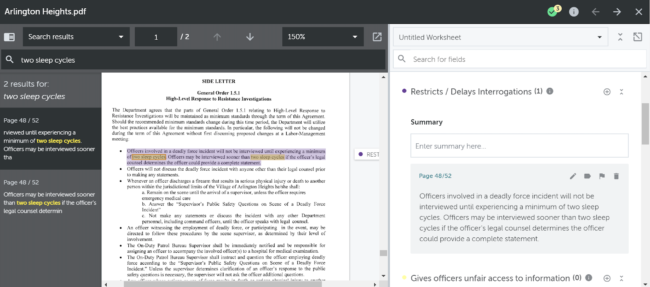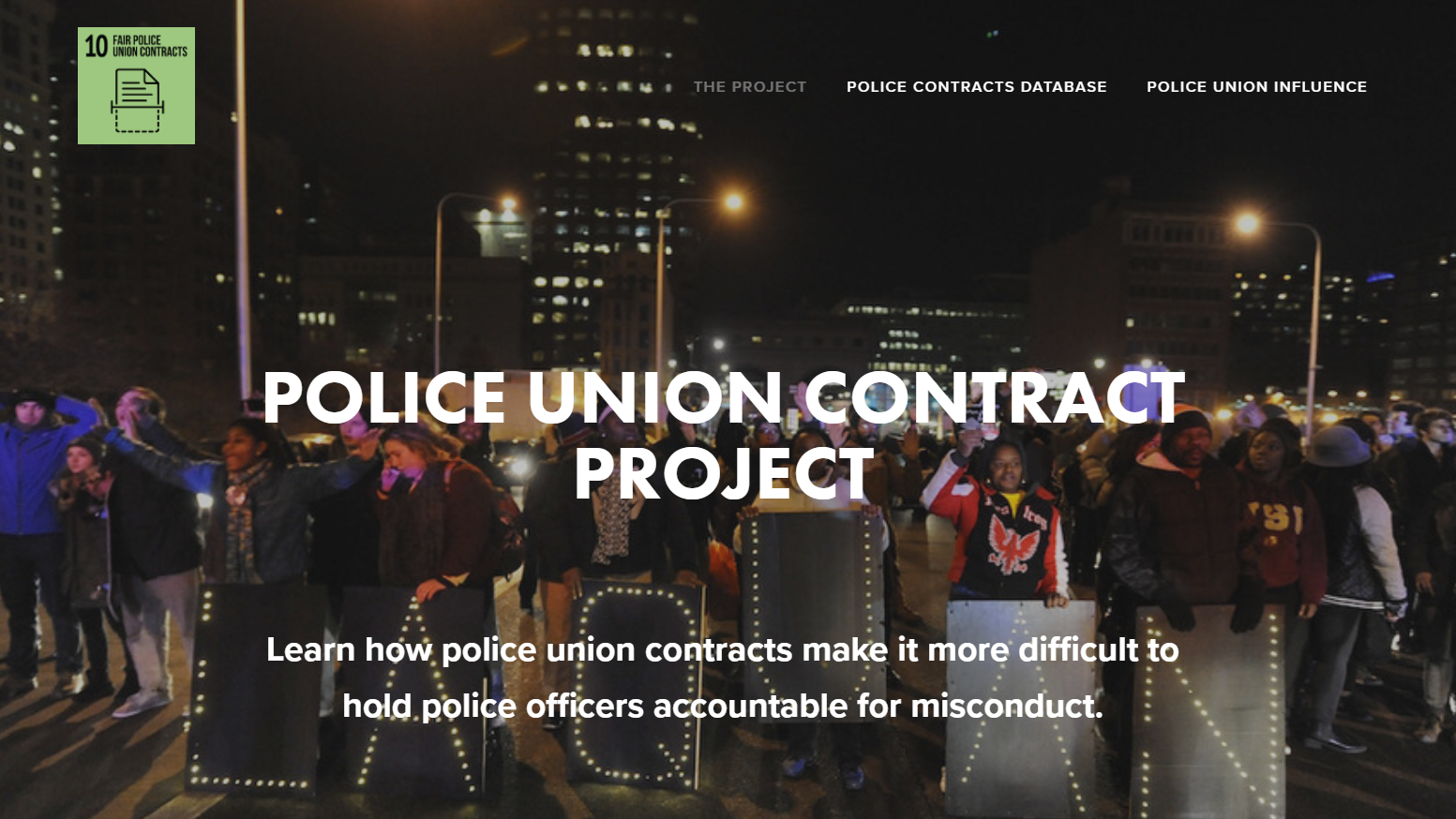Kira Systems is known in the legal profession for its machine learning software that identifies, extracts and analyzes text in commercial contracts, often used in M&A due diligence reviews. But in a unique public policy partnership, Kira’s software is being deployed as part of a police-reform initiative aimed at reducing police violence.
The reform initiative, Campaign Zero, is focused on developing data-driven solutions to end police violence and hold police accountable. While it is pursuing reforms on a number of fronts, one of its initiatives, Check the Police, seeks to eliminate provisions in police union contracts that make it more difficult to hold police officers accountable for misconduct.
As part of this initiative, Campaign Zero has collected more than 600 police union contracts as well as documents known as Law Enforcement Officers’ Bill of Rights (LEOBRs). It is partnering with Kira to enable reporters who are writing about police reform to easily access and analyze those contracts for clauses that may limit accountability.

Using Kira, a clause is highlighted that delays interrogation of an officer involved in a deadly force incident.
Kira’s technology is being used to power a smart database of all these contracts and LEOBRs for use by reporters and others who are researching policy reform. Campaign Zero will expand on the database by using API integrations that will be built into its own website to share this information with other interested parties.
In addition, Kira’s document management functionality was used to accelerate the process of reviewing these documents. Just as Kira does in an M&A review, its ability to highlight key provisions and group them into fields helped Campaign Zero organize the contract data.
“We believe people make better decisions when they understand what’s in their contracts,” Kira CEO and cofounder Noah Waisberg said of the partnership. “That applies in the policy realm as well as the business world. This is an area where we, as a society, really need to make better decisions.”
Campaign Zero has identified six types of clauses in police contracts that reduce accountability, which it will be highlighting in a forthcoming campaign called “Nix the 6.” These are clauses that:
- Disqualify misconduct complaints submitted too long after an incident or if an investigation goes on for too long.
- Prevent interrogation of police officers immediately after an incident or that otherwise restrict timing of an interrogation.
- Give officers access to information that civilians do not get prior to being interrogated.
- Require cities to pay costs related to police misconduct.
- Prevent information on past misconduct investigations from being recorded or retained in an officer’s personnel file.
- Limit disciplinary consequences for officers or the capacity of civilian oversight structures or the media to hold police accountable.
Kira’s software allows reporters and others who are covering or evaluating potential policy changes to quickly identify these types of terms and clauses in the collection and to compare terms and clauses.
The database allows geographical filtering, so users can focus on police contracts in their home states, or empirically study whether there is a relationship between contract terms and outcomes.
“There is a hidden system of protections that almost guarantee that policing will not change and that officers will not be held accountable for their behavior,” said DeRay McKesson, cofounder of Campaign Zero. “… Thanks to Kira’s machine-learning software, we can systematically evaluate and dismantle these contracts that stifle reform, thus making it easier to pursue fundamental change.”
Beyond the context of police reform, Waisberg sees the potential for using AI and contract analysis to drive data-driven analysis across a range of policy issue.
“We look forward to enabling lots more people – including advocates and activists, policymakers, academics, and journalists – in this important work,” he said.
 Robert Ambrogi Blog
Robert Ambrogi Blog